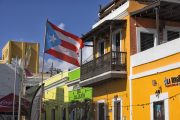A high-ranking Mexican drug-cartel operative extradited to the United States claimed in a recent court filing that he was actually trafficking tons of cocaine on behalf of the American federal government, prompting a media frenzy in Latin America but almost no coverage in the U.S. press.
A federal indictmentfiled earlier this month alleges that Jesus Vicente Zambada-Niebla, also known as “El Vicentillo,” served as a “logistical coordinator” for the notorious Sinaloa drug-trafficking cartel. Zambada is accused of allegedly participating in the importation into the United States of multiple tons of cocaine, as well as other related crimes.
But in a two-page filing with the federal court in Chicago, Zambada’s lawyers made a startling assertion that could have broad repercussions for the prosecution. According to the document, Zambada was actually operating under government authority on behalf of multiple U.S. law enforcement agencies including the FBI, DEA, ICE, the Department of Homeland Security, and even the U.S. Department of Justice. Some of the agents allegedly involved were even mentioned in the document.
“Public authority for the defendant’s acts began from at least on or about January 1, 2004 and continued to and included on or about March 19, 2009,” the court filing states. Zambada’s lawyers also noted that he may invoke “entrapment by estoppel” in his defense as well — essentially arguing that, at the very least, the feds actively led Zambada to believe that he was acting “pursuant to official authorization.”
After being arrested by the Mexican military in 2009, Zambada was transferred to the U.S. early last year to stand trial. He pled not guilty to conspiracy charges related to the importation and distribution of cocaine and heroin. But if convicted, Zambada could face life in prison.
A few American reporters, including Bill Conroy of NarcoNews, Fronteras Project’s Michel Marizco, and Paul Joseph Watson of InfoWars, have covered the new allegations of government involvement. But while most U.S. media outlets failed to report the news, the court filing is making headlines all across Latin America.
“U.S. Agents Helped Drug Trafficking,” reads a headline about the case in a Mexican newspaper — one of many. “The United States Sponsors Drug Traffickers,” declares another, noting in the opening paragraph that the ATF was recently caught supplying weaponry to the cartels in Operation Fast and Furious. “DEA and FBI allowed ‘El Vicentillo’ to traffic drugs to the U.S.,” states a third. The outrage is intense.
Reporters also pointed out that Zambada was connected to an airplane that crashed in 2007 carrying four tons of cocaine. European investigators linked that plane — tail number N987SA — to CIA torture operations in Europe. It was purchased using Sinaloa drug money just weeks before it crashed. The buyer, a man named Greg Smith, is known to have worked for the numerous U.S. law enforcement and intelligence agencies.
There are several theories floating around about what might be going on. “[Zambada’s] claim, if true, adds credence to theories long in play that the Mexican and U.S. governments are essentially showing favor toward the Sinaloa drug organization and its leadership … as part of a broader strategy to weaken and ultimately eliminate rival narco organizations,” wrote Bill Conroy in a detailed piece for NarcoNews.
The Austin, Texas-based global intelligence firm Stratfor confirmed in a recent report that most of the Mexican cartels were suffering major setbacks — except the Sinaloa Federation. “In order to reduce the violence, compromise with the lead cartel — once unspeakable — now looks like a real option for the Mexican government, which is incapable of eliminating cartels completely,” a summary of the report explained, noting that Sinaloa would likely dominate Mexican drug trafficking soon.
In response to questions from The New American, a spokesman for the U.S. Attorney’s office in Chicago declined the opportunity to comment, saying, “as a matter of policy, we do not comment outside of the public court record on pending cases.” Prosecutors have not yet filed a response to Zambada’s allegations.
Three of Zambada’s attorneys could not be reached for comment by press time. One of the lawyers representing him said he was not authorized to speak about the case beyond what was already noted in the filing.
But a law professor highlighted the seriousness of the allegations in an interview with Fronteras Project reporter Michel Marizco. “Essentially, this is the type of claim by a defendant that puts the government on trial; saying that the government sponsored illegal activity,” asserted Wayne State University Law School professor Peter Henning, pointing out that a “public authority” defense is almost unheard of in organized crime cases.
“Given what’s going on with the Mexican drug cartels, the last thing the United States can handle is any kind of finding that it in fact sponsored one of the drug cartels,” he added.
Of course, this would not be the first time the federal government’s involvement in drug trafficking has been exposed. Former DEA boss Robert Bonner actually went on CBS and accused the CIA of importing cocaine. The New York Times covered part of the story, too, in a piece entitled “Anti-Drug Unit of C.I.A. Sent Ton of Cocaine to U.S. in 1990.”
Investigative journalist Gary Webb exposed a drug-trafficking network reaching into the highest levels of the U.S. government. The cocaine profits were being used to finance various clandestine operations in Latin America. Webb eventually died from two gunshot wounds to the head in what authorities dubbed a “suicide.” But the government eventually admitted to even more than what he had exposed.
Mexico’s Zambada is also accused of conspiring to obtain weapons in the U.S. to wreak havoc during the period he claims to have been working for the federal government. The Obama administration is refusing to cooperate with a congressional investigation of the ATF operation that was deliberately giving high-powered weapons to Mexican cartels, some of which were involved in the murders of federal agents.
According to analysts, there is likely much more to come about these stories — unless, as some speculate, the case completely disappears from public view under the guise of “national security.” But with almost 40,000 murders in Mexico attributed to the government’s war on drugs in recent years, interest will certainly not fade any time soon.
The Zambada drug case is currently pending in federal court in Illinois. The next step is a status hearing on June 15 before U.S. District Judge Ruben Castillo. The other case is pending in Washington.
The allegations made by Zambada add to worries about a long list of suspicious government operations attracting scrutiny in recent weeks. With the exposure of the ATF’s Operation Gunrunner, project “Fast and Furious”; along with recent revelations that some al Qaeda terrorists were working with Western intelligence agencies, even as others currently serve as U.S. government allies in Libya; it appears to critics that many of the “boogey men” the federal government claims to be saving Americans from are not always what they seem.
Photo: A courtroom artist’s drawing of Jesus Vicente Zambada-Niebla appearing before a U.S. District Judge on Feb. 23, 2010, in Chicago’s federal court.




